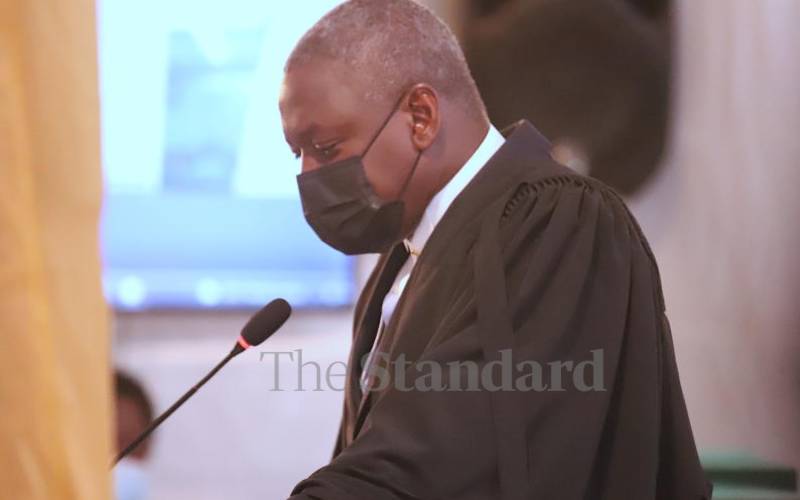×
The Standard e-Paper
Fearless, Trusted News

Senior counsel Otiende Amollo at the Appellate court for the hearing of the BBI appeal on June 30. [Denish Ochieng, Standard]
The brains behind Building Bridges Initiative (BBI) are Suna East Member of Parliament Junet Mohamed and former Dagoretti MP Dennis Waweru, the Court of Appeal was told yesterday.